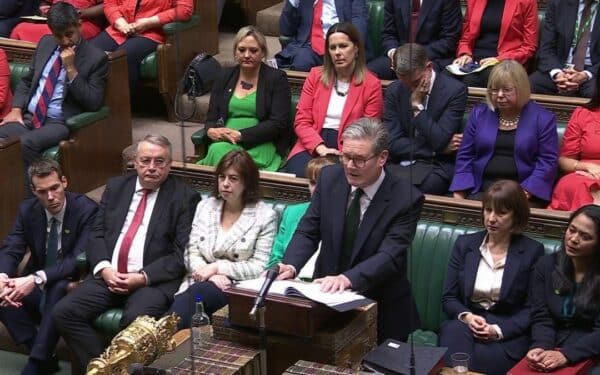As the latest poll puts Labour just 12 points ahead of the Tories, Keir Starmer has insisted he is not concerned that the Tories are closing the gap. But should he be?
Speaking to inews today, the leader of the opposition insisted Labour was “making better progress than most people thought we could,” and he remains “confident” of his party’s position ahead of next month’s local elections. Starmer dismissed the “voices and opinion polls that are intended to knock you off course,” adding that he was “single-mindedly focused” on his “job is to ensure that we’ve got the Labour party into government.”
Starmer’s confidence ahead of a local elections is most likely founded. Indeed, the results are widely expected to be bruising for the government.
That said, the landslide Labour victory anticipated at the next general election mere months ago looks evermore uncertain thanks to its narrowing poll lead.
Labour’s peak lead of around 30 points in the aftermath of the Liz Truss short-lived administration has fallen sharply since Sunak became leader. Two months ago it had dropped to a 20 point lead then last week, a Politico poll put Labour 15 point ahead, and now, the most recent poll suggests it’s tighter still.
According to Redfield& Wilton poll from 16 April on the latest voting intention poll in Great Britain, the Labour Party is leading by 12% – two points less than the week before – with Labour on 44% and the Conservative party on 32%.
This the narrowest lead for Labour since Rishi Sunak took over as Prime Minister to pick up the pieces from his predecessor’s car crash premiership.
Perhaps even more concerning for Sir Keir is the latest findings on his and the PM’s personal approval ratings.
When those polled by Redfield & Wilton were asked who would be the better Prime Minister at this moment, Keir Starmer lead by just a single point, with 37% deeming it to be Starmer – two points down since 9 April – and 36% opting instead for Rishi Sunak (up one point since 9 April).
Sunak is determined to portray himself a level-headed problem solver. He has a long way to go on tackling the NHS backlog and resolving the strikes or small boats crisis but an easing energy crisis, falling inflation and a Brexit breakthrough – in the form of the Windsor agreement – all seem to be helping to shift public opinion.
And if May’s results are bad, the PM’s supporters can say it’s a hangover from his predecessor. The big question is whether an October 2024 election gives Sunak the time he needs to sort out some of the most pressing problems? Alternatively, if inflation does come down sharply as predicted, will he take the country by surprise and spring an early vote on us? Talk of surprise election pledges – like abolishing the dreaded inheritance tax and cutting taxes – could be on the cards.
Write to us with your comments to be considered for publication at letters@reaction.life




